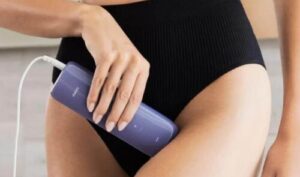Hair removal is an essential part of your grooming. The issue is it’s not a one-size-fits-all scenario. Your skin and hair type are as unique as your fingerprints, making it essential to take an equally unique approach to hair removal. For instance, do you have the right skin type for hair removal? What’s the right way to remove hair according to your hair and skin type?
Following, we will discuss in detail the right way to remove hair according to your skin and hair type and how you can use different tips and tricks to make your own personalized hair removal routine that is safe and effective.
Understanding Your Skin Type
The first step to personalizing your hair removal is learning about your skin type, its characteristics, what suits it, and what doesn’t. In the following, we will give you a breakdown of different skin types to help you understand this.
Normal Skin: If your skin isn’t too oily or dry and doesn’t get severe reactions, acne breakouts, or blemishes pretty often, then you must have been blessed with normal skin. You have flexible options and can easily experiment with different hair removal techniques. Just follow some basic skincare rules to keep your skin healthy.
Start with a mild, pH-balanced soap and shaving cream if you want to shave your hair. You can also try laser hair removal, waxing, and hair removal creams without issues. Just make sure you use a moisturizer afterward.
Dry Skin: If your skin feels tight, has flaking and rough patches, gets irritated, or razor burns from shaving, then you have dry skin. Moisturizing is the key here; use it before and after removing hair. Try using a shaving cream that is specially formulated for dry skin. Don’t use alcohol-based products because they will make your skin drier. You can also opt for waxing, but use a hydrating moisturizer afterward.
Oily Skin: If you have an oily appearance and your skin is prone to acne and ingrown, then you have oily skin. So, you best maintain your hygiene to avoid getting clogged pores. You can remove hair with shaving or depilatory creams; use a cleanser to help balance your skin’s oil levels later.
If you can afford it, you can also try laser hair removal, as it helps reduce hair density, which can help reduce excessive skin oil later.
Sensitive Skin: If your skin suffers from redness, itching, and burning sensation a lot, and it quickly reacts to different products or environmental factors, you probably have sensitive skin. It would be best if you took extra precautions regarding hair removal. Avoid harsh chemicals or techniques that may agitate your skin, especially waxing and hair removal creams.
Instead, opt for laser hair removal or gentle shaving; both are more controlled and less irritating ways to remove hair.
Combination Skin: If you have oil skin in some areas (like T-Zone) and dry skin in some, you have combination skin. This type needs a more strategic approach to hair removal, as you must switch between techniques on different parts. For example, you can gently shave or use laser hair removal for the oily parts while getting a hair removal cream (with hydrating and moisturizing properties) for drier parts of your skin.
Mature Skin: With age, your skin becomes thin, prone to dryness, and less elastic. So, you better find a gentle approach and avoid aggressive techniques, as they can damage your skin. Stay away from waxing and strong removal creams. Instead, shave with electric razors, which hardly leave nicks or cuts. You can also opt for laser hair removal, as it’s precise and isn’t abrasive.
After the hair removal, use serums and moisturizers to keep your skin hydrated. Try looking for products with hyaluronic acid and glycerin; they will help keep your skin moist, soft, and elastic.
Understanding Different Hair Types
Body hair is different across different body parts, and you should choose the removal method based on your overall skin type and hair type to help for a smooth hair removal experience, minimizing irritation or other skin issues.
Arm Hair

Arm Hair range can be from fine or hard to notice to more pronounced and denser. The hair texture and visibility vary depending on genetic aspects, hormonal changes, and age. In the following, we will explain this in more detail so you can pick your hair removal method based on your skin type and preferences.
When personalizing hair removal for your body hair, remember your age. If you are in your teens or 20s, you probably have lighter and finer arm hair; you can shave or use a hair removal cream. But if you are in your 30s-50s, your hair texture and growth will have changed due to hormonal fluctuations, so try waxing and laser hair removal here.
If you are 60 or older and have sensitive skin, try moisturizing your skin and gently shaving. You can also try laser hair removal, but again, mind your skin’s sensitivity.
As for the skin, if you have sensitive skin, try gentle shaving or electric trippers; they minimize irritation and avoid waxing or hair removal cream. If you have dry or eczema-prone skin, then use moisturizing cream. If you have oily skin, laser hair removal is best, especially for thicker hair.
Leg Hair

Leg hair is coarse and more prominent than arm hair; they differ in density and thickness, and worse, they grow quicker, making you remove them repeatedly. So, you need a method that is both effective and minds your skin’s sensitivity.
Leg hair grows back quickly during teens or 20s. So shaving and depilatory creams work best for regular maintenance, but as you get into your 30s – 60s, you will see an increase in hair growth and density. Here, waxing and laser hair removal promise long-lasting results and address any changes in hair texture.
For the 60+ age group, the skin becomes thin and more sensitive. Resort to gentle shaving and moisturize your skin. You can also consider professional waxing or laser. But before you finalize your approach, mind your skin as if you have sensitive skin, then use hypoallergic products.
Please Stay away from digressive waxing, as it will agitate your skin. If you have dry or eczema-prone skin, then moisturize your skin before and after shaving. If you have oily skin, waxing can help remove hair and control oiliness; you can also consider laser hair removal for long-lasting results.
Underarm Hair

These hairs are thick and coarse; worse, they grow in different directions. Moreover, this area is prone to moisture and causes skin issues. In the following, we will show you how to safely remove hair from here, considering aspects like growth patterns and your skin.
If you are in your teens or 20s, you have sensitive skin, so you better use a sharp razor with gentle shaving cream to remove hair. As you age (30s-50s), hormonal changes will affect hair growth and skin sensitivity. Here, waxing and laser hair removal can offer long-lasting results. If you are 60 or above, you better try something gentle like electric trimmers with a hypoallergenic cream, or if you can afford it, get professional wax.
Now, as for your skin, if you have sensitive skin, then go with electric trimmers and use a sensitive skin cream to avoid irritation. Stay far away from hot wax and hair removal cream. For dry or Eczemic skin, use a moisturizing cream before and after shaving, but only do it with a razor because anything else, like razor or waxing, might worsen things. Waxing can be an effective and long-term solution if you have oily skin.
Bikini Area Hair

Here, you have coarse and curly hair with sensitive skin, making it more prone to ingrown hair and skin irritation. Moreover, hormonal changes and age also affect hair growth and skin sensitivity, so it is better to be careful while removing hair.
If you are a teen or in your 20s, you have resilient skin here to resort to shaving and waxing. Do it properly, or else you will suffer from irritation and ingrown hair. If you are in your 30s – 50, hormone changes will make waxing and laser a better option. But does laser hair removal work on blonde hair? It does, but it depends on several factors, like how you prepped or your technician’s ability. For the 60+ age group, as the skin gets delicate and thin, you are better off with soft waxing or gentle shaving. Laser is also a good option, but keep your skin sensitivity in mind.
If you have sensitive skin, shave with a hypoallergic shaving cream or get professional wax. For dry or eczema-prone skin, shave your hair off and make sure your skin is moisturized. For oily skin types, waxing can help, but laser is better for the long haul.
Chest and Back Hair

Chest and back hair differ in density, thickness, and growth rate. These differences occur thanks to genetics, hormonal changes, age, and other factors. We will share these considerations and help you personalize chest and back hair removal to suit your condition and preferences.
If you are in your teens or 20s, your chest and back hair aren’t very dense; they are soft, so try shaving or using a hair removal cream. You can also use electric trimmers. For the 30-50s, this hair becomes thick and has a more pronounced look, thanks to hormonal changes. If you want long-lasting results, consider waxing and laser. For 60 years and above, consider your skin sensitive and easily irritated, so you are best off with electric shavers and soft waxing.
As for skin types, only use electric trimmer hair to avoid irritation. If you have dry or Eczema skin, moisturize your skin before and after hair removal, and only stick to gentle shaving or trimming. If you have oily skin, remove hair with waxing, which is better for thicker hair and controls your skin’s oiliness.
Facial Hair

Facial hair in women can be finer and less visible than in men. Still, they vary in density and texture thanks to genetics, hormonal changes, and age. Here, we will show you how to remove your hair based on age and skin type.
You have finer and less dense hair if you are in your teens or 20s. Threading or gentle plucking will be fine; try light shaving if your hair is thick. If the hair is almost unnoticeable, then try bleaching. The 30s to 50s see an increase in hair, thanks to hormonal changes during menopause or pregnancy, which leads to an increase in hair growth or changes in hair texture. Waxing, threading, and laser hair can also serve you well. For 60 or above, consider your skin has become sensitive. So, you better resort to threading or electric facial trimming; both are safe.
As for skin, if you have sensitive skin, go for threading or use hypoallergic products when shaving. Don’t use any harsh chemicals or even waxing. If you have dry or eczema-prone skin, moisturize it before and after removing hair by either shaving or threading. Avoid waxing here because it strips your facial skin of its essential oils. If you have oily skin, you can wax as it removes hair and excess oil. But what about oily skin types for laser hair removal? It works perfectly.
End Word
Personalized hair removal is effective for personal grooming. Understanding your skin, hair, and preferences goes a long way to creating a seamless personal grooming routine. While laser treatment, apart from effectiveness, you also need to mind your health. This guide will help you make an informed decision.

 By myulikeadmin
By myulikeadmin



